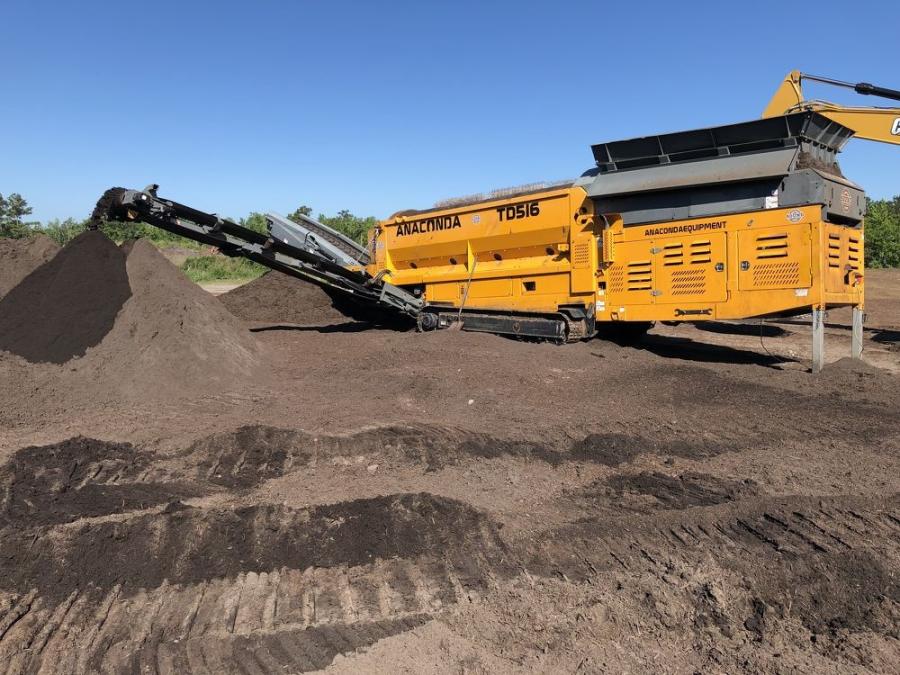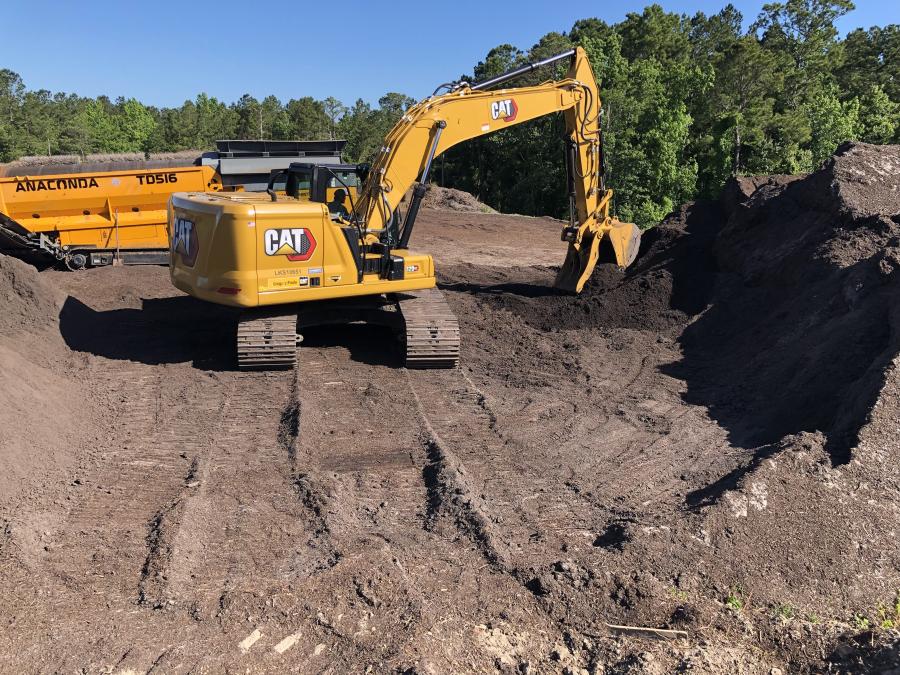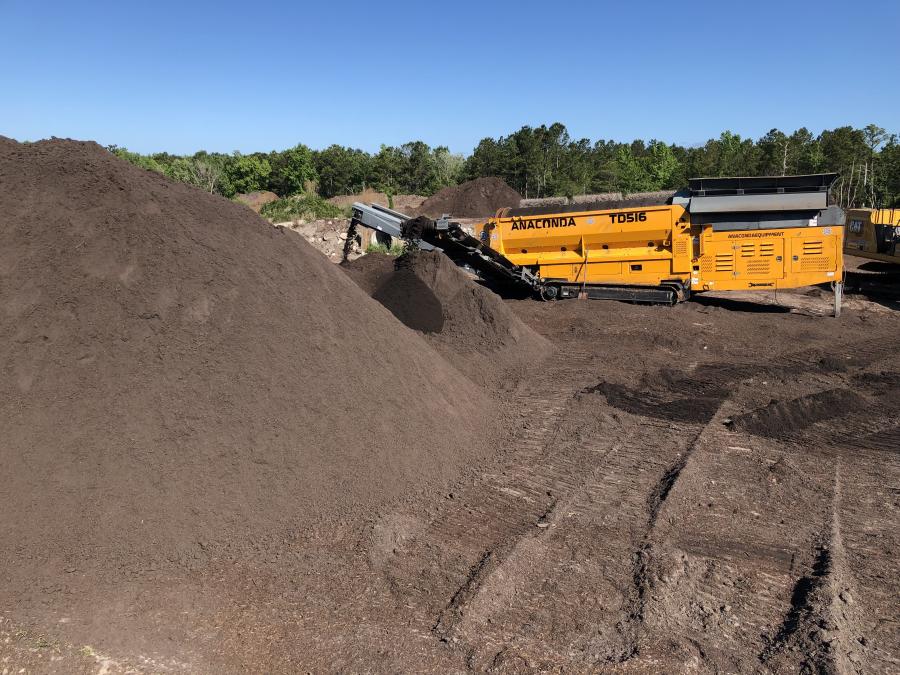
Thu June 23, 2022
Eric Olson - CEG CONTRIBUTING EDITOR
Not long after graduating from college, Riley Alber found work as a land surveyor, where he spent his days hiking through woods and wetlands just as he had as a youngster in southern New Jersey.
Although he loved being outdoors, he soon realized that his job was a contradiction to his belief in preserving the health and sustainability of Earth's natural environment.
"It was tearing me apart to cut some of the last forests that exist here in the Southeast," Alber said. "Through that, I made a life change to small-scale organic farming and really dove into the agricultural industry full throttle. That experience shifted my focus toward soil biology and local waste streams due to my college background."

He had earlier prepared himself for a career path working in environmental sustainability by attending the University of North Carolina at Wilmington. There, Alber majored in Environmental Sciences — a curriculum that included natural resource management and conservation — and minoring in Geospatial Information Systems (GIS).
It was that bit of clarity as a surveyor and an intense desire to take action to close a loop in the circle of sustainability, that led Alber to form Wilmington Compost Co. in July 2018.
Then and now, the business is operated on Piney Run Farms, his family-owned 75-acre piece of property north of Wilmington that had previously been the site of the Pender County vegetative landfill. The size of the land also allows him to grow food for his family's use.
Now, though, Alber describes Piney Run Farms as a primarily materials and recycling yard.
"Luckily, through starting the compost hauling, we were able to grow, and within two years, I was able to go into business with my brother, Trey, and bring on some additional family members," he said, adding that his father, mother and sister also play active roles within the company."
His dad, Richard, operates machinery on the farm, and Riley's mother, Mary, works in the office as its secretary. In addition, his sister, Haley, whose full-time job is as a nurse, comes by the farm from time to time, he said, to lend a hand in whatever work needs doing, including collecting food waste.
"Now, we all act as a team and Trey runs the farm and manages that operation. It has just been a blessing how we have all been able to come together to run this business."
Operation Works to Give Organic Waste Second Life
Wilmington Compost remediated and processed all the natural materials that were already at the landfill and currently refines biofuel materials and wood-waste products to reduce fossil fuel and coal consumption.
"We provide a curbside food waste collection and hauling service in which we also distribute compostable packaging products to the local food and beverage industry here in Wilmington," Alber said. "To bring that home, we run a compost facility and processing site where we do all our organic waste recycling efforts and soil manufacturing. On the tail end, we then distribute the soil to create healthier soils here in our community."
After the Alber family processes what it hauls in, it takes those now-clean, refined materials, such as mulches, screened topsoil, screened fill dirt, soil conditioner and surge rock and sells them to landscapers and contractors.
The entire operation stems from Alber's passion for soil biology, the local food network and recycling natural resources.
Anaconda Trommel Screener Key to Alber's Operation
Using front-end wheel loaders, Wilmington Compost blends the compostable materials with community feedstock — the latter of which is a biomass that is converted into a compost — and puts the mixture into the company's soil products through an extensive management process to make certain it meets all state environmental requirements.
"We do a layering pattern with some of the community feedstocks that we collect, in addition to some of our proprietary ingredients," he said. "The organic waste comes from vegetative land-clearing debris as well as local food waste and mushroom substrates. We turn all the piles, aerate the materials to keep them moist and compost and degrade those down into a finished product."

Besides the front-end loaders and an excavator, another of Alber's important pieces of equipment is an Anaconda T516 trommel screen he has been renting from Sound Heavy Machinery Inc. in Wilmington.
"We chose that machine because we needed to screen out a lot of our larger particle pieces so we could come out with a fine, finished product for our consumers," he said, "and it has done a great job in doing that in a timely fashion and when needed. With that machine's size and throughput capability, we thought it was a good match for the size of our operation out here."
Acquiring the Anaconda trommel screen from Sound Heavy Machinery also was made easier for Alber, he said, due to his working relationship with Mark Wyatt in the dealership's equipment sales and rental department.
"Although we have primarily worked with Mark [Wyatt] on getting a screener, he has been a great help," Alber said. "At times, when we have evaluated other equipment opportunities, he has been right there to answer our questions. With the screeners, he provided insight and support for us, including whether we were going to go with the 16-foot or 20-foot Anaconda trommel screens, or just learning more about the Anaconda product itself."
Growing Company One of N.C.'s Leading Composters
Wilmington Compost is just in its second year working at the Piney Run Farms site, but Alber is proud to note that the business is almost doubling the volume that it did in 2021.
In addition to partnering with over four dozen local restaurants, coffee shops, schools, businesses and food banks, Wilmington Compost is an active member and partner with the Coastal Composting Council (CCC), an education and advocacy group supporting diversion of organic residues to produce compost in the state. The group is an offshoot of the North Carolina Compost Council, which itself is part of the national organization.
"One of the things that we pride ourselves on is being a leader in the compost industry here in Wilmington," Alber said. "We take pride in the active biology in our soils, and the cleanliness and quality of those soils. We are here to work with homeowners and contractors of all sizes to distribute healthy soils."
For more information, visit www.wilmingtoncompostcompany.com and www.soundheavymachinery.com. CEG
 Aggregate Equipment
Aggregate Equipment Articles
Articles Email Updates
Email Updates Sell Your Machines
Sell Your Machines

 Aggregate Equipment
Aggregate Equipment Aggregate Dealers
Aggregate Dealers Aggregate Articles
Aggregate Articles Email Updates
Email Updates Sell Your Machines
Sell Your Machines